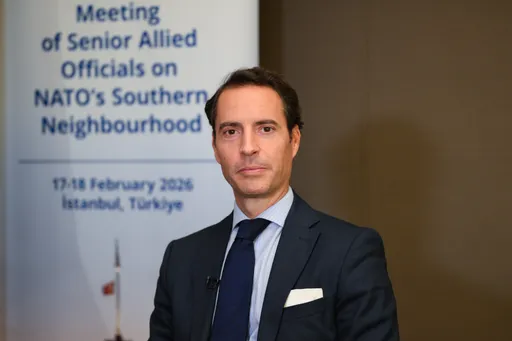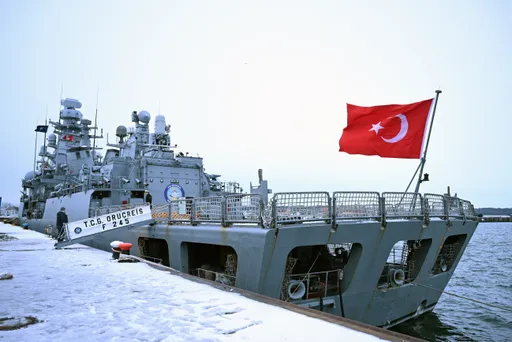On September 17, 28-year-old Sali Hafiz barged into a bank with her nephew's toy pistol and demanded her savings from the branch employees.
In what appeared to be a real bank heist, the stationed bankers were quick to give in, releasing $13,000 from Hafiz's savings account. Hafiz had lost access to her own savings because the Lebanese government had put a withdrawal limit for each bank account as a measure to fix its ailing economy. Hafiz could only withdraw $200 a month, which was not enough for her sister's cancer treatment.
The mock robbery was yet another strong indicator of Lebanon's public desperation caused by years of economic turmoil, which has prompted a series of bank heists conducted by individual depositors seeking the release of their own funds.
A so-called "man-made" economic collapse beginning in 2019 has now thrown over 80 percent of the population in Lebanon into poverty, causing a series of desperate responses. The country is suffering from a shortage of medicines, food and long power outages, in addition to a number of other consequences of grave government mismanagement. While some have likened the situation to a "ponzi scheme", and others called it a "failing state", the reality of the situation is that it has essentially fractured life and the livelihoods of the entire population.
To highlight, after an IMF visit to Lebanon ending on September 21, mission leader Ernesto Rigo says, “GDP has contracted by over 40 percent since 2018, inflation remains in triple digits, FX reserves are declining, and the parallel exchange rate has reached 38,000 LBP per USD. Amidst collapsing revenues and drastically suppressed spending, public sector institutions are failing, and basic services to the population have been drastically cut. Unemployment and poverty are at historically high rates.”
He adds that while the government making some progress on economic reforms suggested earlier this year, they are too far behind.
A key reason this is affecting the population in its entirety is that commercial banks across the country have frozen account holders' savings and have greatly restricted access to current funds. While the people have made multiple attempts to protest the government's inadequacies and call for reform, it has always been responded to with state violence.
In response to this three-year-long nightmare, today, people are turning to never-before-seen tactics to meet basic needs.
Bank heists
The cases of bank heists similar to Sali Hafiz's are rising in the capital city: a father storming the central bank demanding access to his funds to pay for treatment for his sick son. After Sali’s incident, another five attempted heists took place across the country. While some arrests were made, the majority of the charges have been dropped. Many were released after protesters demanded their release. As a number of these incidents were live-streamed, Lebanese people quickly supported them because there was no other recourse.
In response, banks observed a shutdown for nearly a week and threatened indefinite closure in response to “risks” to employees as a result of these "populist" attempts. They have since issued a statement citing they will reopen after “consideration of the current difficult security conditions and the need to maintain the safety of customers and employees alike in the absence of adequate protection by the state".
Tripoli shores
Some in the country have even fewer options causing an increase in precarious migration attempts this year. Heart-wrenching reports throughout the weekend confirmed that up to 94 people drowned off the coast of Tartus in Syria after leaving Tripoli in Northern Lebanon. The boat was transporting up to 150 Lebanese and Palestinian individuals and families, including elderly and children. It is still unclear how the boat sank, and rescue operations from Lebanese NGOs managed to save some of the passengers.
A report explains “the number of people who left or tried to leave Lebanon by sea nearly doubled between 2020 and 2021, the UN refugee agency said earlier this month. The figure rose again by more than 70 percent in 2022.”
This follows a similarly devastating incident past April resulting in seven confirmed deaths and a long list of people still unaccounted for.
While the population mourned this horrible loss of life, the Lebanese government’s rhetoric on the issue thus far has been, for the lack of a better term, entirely under the domain of "victim blaming".
There is a clear consensus, both locally and internationally, that the situation in Lebanon is increasingly dire. However, on a local level, there has not been a genuine modicum of effort towards restoring the dignity and civil and economic rights of citizens or residents.
Internationally, global aid funds are reluctant to work with a state that shows no effort in rooting out corruption and corrupt governance models. While things may remain at a standstill at this level, the lived reality of anyone living in Lebanon worsens. This is not only unsustainable and is ensuring abject state failure, but clearly, certain brackets of the population will turn to dangerous methods to ensure their security as human beings sooner than others. Dangerous popular responses to this impossible situation will continue to appear, and other than continuing to place pressure on the government and international bodies alike, it is critical to organise around these responses and provide support.























